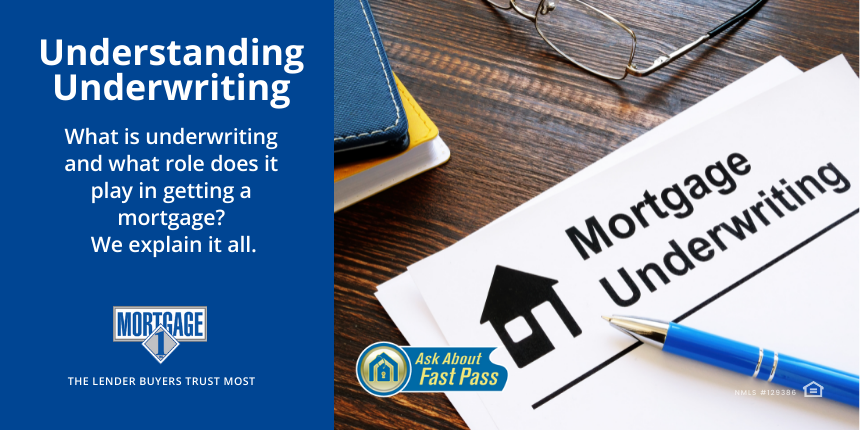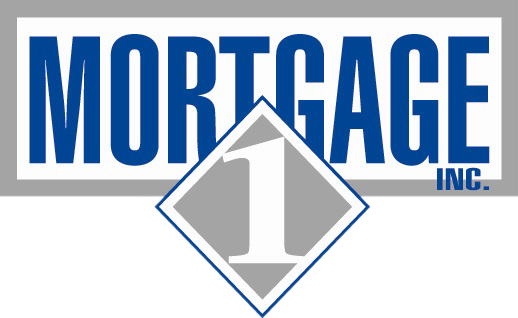
Best of Mortgage 1 in 2021
December 15, 2021
The Mortgage Underwriting Process Explained
January 13, 2022How to plan your home-buying budget before and after you purchase a new place.
So, you’re ready to buy your first home. Many first-time homebuyers are surprised to learn that they need more than just a loan to cover the purchase price – there are a lot of associated expenses that homebuyers might have to pay out of pocket. In this post, we’ll talk about those expenses and what you can do to meet them.
| Expert help is a click away! Mortgage 1 loan officers will help you find the right mortgage and tell you exactly what you need to do to make it happen. Call 1-866-532-0550 or locate a Mortgage 1 loan officer near you. |
How Lenders Determine Loan Amounts
First, let’s talk about the big expense: your mortgage and the monthly mortgage payment you’ll be making.
Finding the right type of mortgage can lower your monthly payments. Why? Because different mortgage types have different terms; some require higher down payments, others offer lower down payments in exchange for a higher interest rate, and so on. A conventional mortgage isn’t always the best choice, nor is it something that every homebuyer can qualify for; that’s why there are FHA, USDA, VA, and other nontraditional mortgages available.
Aside from the price of the home, your monthly mortgage amount will also include interest payments. Mortgage interest rates are based on a variety of factors, including your credit history and score, debt-to-income ratio (DTI), and your down payment amount. We’ve already covered mortgage interest rates in this blog, so let’s just summarize what lenders are looking for:
- Down payment amount (which we’ll discuss below).
- Credit score – The higher the score, the lower your interest rate.
- DTI – Usually, lenders like to see no more than 43% of your monthly income go to paying off debts (like car loans, student loans, credit cards, etc.).
Mortgage lenders offset the risk of lending money by charging interest rates; the more likely you’ll repay them (based on the factors mentioned above), the lower your interest rate will be.
Ok, so we know how mortgage lenders set their rates. What other expenses should homebuyers keep in mind?
Additional Expenses, Part 1: Mortgage Insurance and Down Payment
Let’s talk more about the down payment. Traditionally, lenders like to see a 20% down payment on a mortgage. But considering that the average 2021 home price in Michigan was over $200,000, that figure ($40,000) may not be reachable for most people.
Enter mortgage insurance.
Mortgage insurance may be included in your loan (e.g. if you have an FHA loan) or it may be something you have to purchase as part of your loan terms. Essentially, it’s an extra fee added to your mortgage payment that insures the lender against loss. When you have mortgage insurance, you can have a substantially lower down payment.
There are ways to increase your down payment, whether that’s by a gift from family and friends or through a state-funded mortgage assistance program.
One last thing: don’t spend every bit of cash you have on your down payment. Mortgage lenders often want to see that you have some financial reserves in case something unexpected happens.
Additional Expenses, Part 2: Closing Costs
Those are your major additional expenses, but we’re not done yet; assorted extra costs can total an additional 3-5% or more on top of the price of your home.
Before closing, it’s a good idea to spring for a home inspection to uncover any potentially expensive problems. You may also need a property appraisal and a title search or title insurance as per your mortgage requirements. And there may also be property taxes, homeowner’s association dues, and a raft of smaller fees (for credit reports, loan origination, application processing, underwriting, etc.) you’ll have to settle. You may need to pay all of these upfront; if you speak to your mortgage officer in advance, you may be able to add some of them to your monthly payment. Here, communication is key. It’s best to get everything settled in advance than to be hit with an unexpected bill at closing time.
And that’s that – except, of course, for ongoing expenses like yearly property tax, monthly utility bills, repair and maintenance bills, and so on. Owning a home is an amazing feeling, but let’s be realistic: it’s not cheap. That’s why it’s best to talk with an experienced Mortgage 1 loan officer before you start shopping. They’ll help you understand your finances and make sure your new home is well within your budget.
Need Help with a Mortgage?
Whether you’re buying your first home or refinancing your current home, we’re here to help you find the best deal possible. Locate a Mortgage 1 officer near you to find out what your options are!





